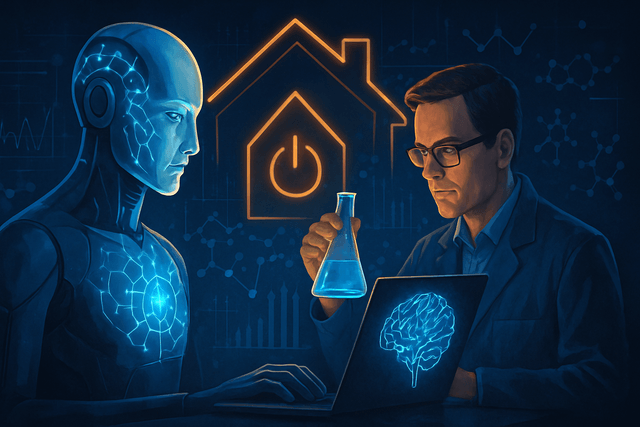FutureHouse's newly launched AI platform represents a significant advancement in the application of artificial intelligence to scientific research, potentially reversing a troubling multi-decade trend in declining research productivity.
The platform consists of four specialized AI agents, each designed to tackle specific bottlenecks in the scientific process. Crow serves as a general-purpose agent for literature searches and concise scholarly answers; Falcon specializes in deep literature reviews with access to specialized scientific databases; Owl identifies whether specific experiments have been previously conducted; and Phoenix assists researchers in planning chemistry experiments.
According to FutureHouse co-founders Sam Rodriques (MIT PhD '19) and Andrew White, these agents have been rigorously benchmarked and demonstrated to outperform both frontier AI models and PhD-level researchers in literature search and synthesis tasks. The platform's development was motivated by Rodriques' experience during his neuroscience research at MIT, where he observed that the overwhelming volume of scientific literature had created an information bottleneck.
"Natural language is the real language of science," explains Rodriques. "Other people are building foundation models for biology, where machine learning models speak the language of DNA or proteins, and that's powerful. But discoveries aren't represented in DNA or proteins. The only way we know how to represent discoveries, hypothesize, and reason is with natural language."
The platform has already shown promise in real-world applications. Scientists at various research institutions have used FutureHouse's agents to conduct systematic reviews of genes relevant to Parkinson's disease, with results reportedly superior to those from general-purpose AI tools. In May 2025, FutureHouse demonstrated a multi-agent workflow that identified a potential new therapeutic candidate for dry age-related macular degeneration, showcasing the platform's ability to accelerate the discovery process.
As scientific output continues to grow exponentially while research productivity declines—with discoveries now requiring more time, funding, and larger teams than before—FutureHouse's approach of creating specialized, task-specific AI agents could provide a solution to help scientists navigate the increasing complexity of modern research.

